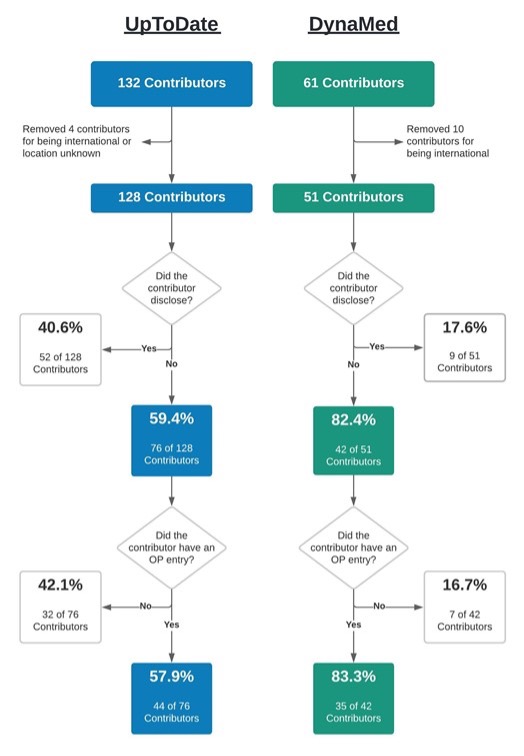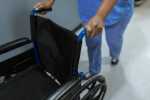
For many years now, professional nursing has held a unique place in the American health care system. Nurses make up one of the largest health care professions in the U.S. with more than 3.1 million nurses working in diverse fields and settings.
Although most nurses work in health care settings like hospitals, a nurse’s expertise expands well beyond the hospital walls. Working on their own and alongside other healthcare professionals, nurses promote the health of families, individuals, and communities.
Nurses have always played an important role in healthcare settings. However, their role has changed a lot over the years. In the past, nurses had extraordinarily little formal medical training. In fact, nurses learned the medical skills they needed from their mothers or other women in the nursing profession.
Today, the nursing profession has changed for the better. Not only are there extensive training programs available for nurses, but this role now comes with a level of prestige that was not there before. And this is not the only thing that has altered. Technology has also played a huge role in changing this profession for the better. Keep reading below to find out about the history of nursing and how technology has changed the role of nursing. For those seeking additional assistance or support in navigating the complexities of nursing education or academic tasks, exploring resources from reputable
nursing paper writing services can offer valuable expertise and assistance in achieving success in the field.
How Nursing Has Changed Over Time
Time has done a lot for many career paths. However, the nursing profession has seen more changes than most. Here are some of the ways the nursing profession has changed over time:
Training – in the past, nurses were not required to have any formal education. However, nowadays nurses are no longer able to care for patients without passing the correct certification first.
Setting – many years ago, nurses would take care of people in their homes or on the battlefield. Although some nurses still care for patients in their homes, nowadays, most nurses work in a hospital setting.
Responsibilities – nursing responsibilities have come a long way from the early days when they used to look a lot like a household chore list. The change in responsibilities for nurses stems from several changes in the profession, including the changing views of women, more comprehensive training, and the growing demand for medical professionals.
Culture – in the 20
th century, nursing culture was known as being mainly made up of females who had a small amount of medical knowledge. While nursing culture has not changed completely, it has changed a lot over the years. In fact, research suggests that more men than ever are choosing to train in this profession.
Patient care – patient care is more important than ever before. The advancements in technology have created an environment that makes patient care more helpful and efficient for patients. These advancements have altered almost every industry in the U.S. and the medical field is no different.
(more…)












 Arman A. Shahriar
Medical Student, University of Minnesota Medical School Research
Consultant, HealthPartners Institute
Minneapolis, Minnesota
Arman A. Shahriar
Medical Student, University of Minnesota Medical School Research
Consultant, HealthPartners Institute
Minneapolis, Minnesota
 Response: Point-of-care ultrasound is one of the most significant advances in bedside patient care, and its use is expanding across nearly all fields of medicine. In order to best prepare medical students for residency and beyond, it is imperative to begin POCUS training as early as possible. At the Lewis Katz School of Medicine at Temple University, we introduced POCUS education over a decade ago and have expanded it since then.
By providing each student with a Butterfly iQ device, we can augment our curriculum significantly. In addition to our robust pre-clinical sessions, now we will expand into the clinical years highlighting the utility of POCUS with actual patients.
This gift was made possible by the incredible generosity of Dr. Ronald Salvitti, MD ’63.
Response: Point-of-care ultrasound is one of the most significant advances in bedside patient care, and its use is expanding across nearly all fields of medicine. In order to best prepare medical students for residency and beyond, it is imperative to begin POCUS training as early as possible. At the Lewis Katz School of Medicine at Temple University, we introduced POCUS education over a decade ago and have expanded it since then.
By providing each student with a Butterfly iQ device, we can augment our curriculum significantly. In addition to our robust pre-clinical sessions, now we will expand into the clinical years highlighting the utility of POCUS with actual patients.
This gift was made possible by the incredible generosity of Dr. Ronald Salvitti, MD ’63. 




 As a specialized healthcare position where you will be responsible for the health and wellbeing of patients, nurses are required to hold a degree and a license before they can begin work. To qualify as a registered nurse, you will need to obtain a BSN degree, which typically takes around four years when studying full-time. However, if you already have a bachelor’s degree in another subject, there is an option that will allow you to become a nurse in half the time; accelerated nursing programs are designed for those who already have a bachelor’s degree and want a quick career change into nursing. The
As a specialized healthcare position where you will be responsible for the health and wellbeing of patients, nurses are required to hold a degree and a license before they can begin work. To qualify as a registered nurse, you will need to obtain a BSN degree, which typically takes around four years when studying full-time. However, if you already have a bachelor’s degree in another subject, there is an option that will allow you to become a nurse in half the time; accelerated nursing programs are designed for those who already have a bachelor’s degree and want a quick career change into nursing. The 







 If you’re currently working as a nurse, you are probably well aware of just how rewarding and fulfilling a job role it can be. You get to help patients from all walks of life every single day and make a real difference to not only people’s health but their lives more generally. It’s also a career in which there is a lot of scope for progression. There are so many different spheres within the field of nursing that you can choose to specialize in, whether it’s a particular age group (like pediatrics or gerontology) or a particular health condition (like oncology or emergency care).
Some of these paths involve training on the job, whereas others require you to return to college to study and obtain a postgraduate qualification. Among these, one of the highest possible qualifications you can aim for is the DNP, or Doctor of Nursing Practice.
If you’re currently working as a nurse, you are probably well aware of just how rewarding and fulfilling a job role it can be. You get to help patients from all walks of life every single day and make a real difference to not only people’s health but their lives more generally. It’s also a career in which there is a lot of scope for progression. There are so many different spheres within the field of nursing that you can choose to specialize in, whether it’s a particular age group (like pediatrics or gerontology) or a particular health condition (like oncology or emergency care).
Some of these paths involve training on the job, whereas others require you to return to college to study and obtain a postgraduate qualification. Among these, one of the highest possible qualifications you can aim for is the DNP, or Doctor of Nursing Practice. 




